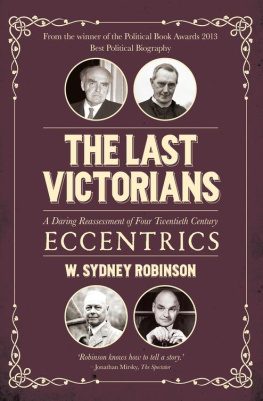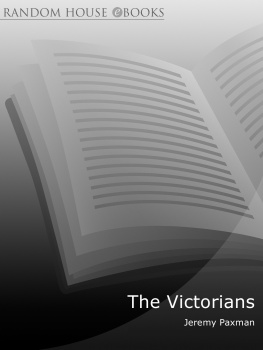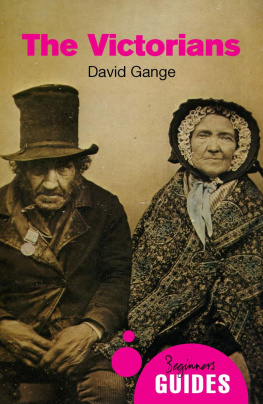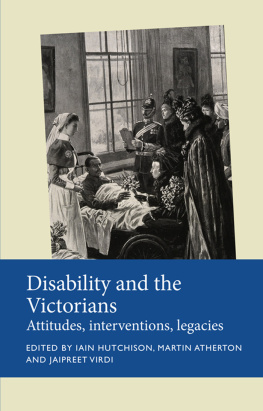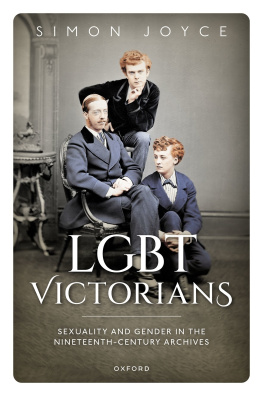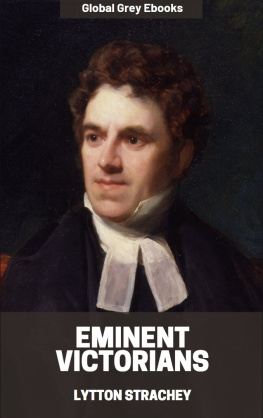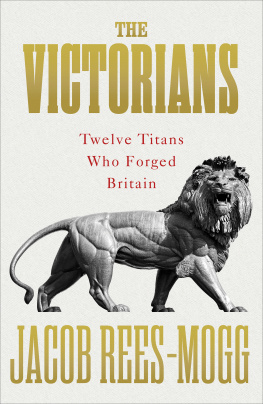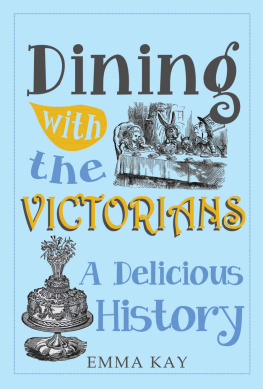Praise for Muckraker by W. Sydney Robinson
A timely study of Britains first investigative journalist with impeccable research, Mr Robinson elegantly pieces together the backstory.
Tobias Grey, Wall Street Journal
A lively and laconic biography.
John Pemble, London Review of Books
I grew to quite dislike [Stead] as I read Muckraker, but thats because
Robinson knows how to tell a story.
Jonathan Mirsky, The Spectator
W. Sydney Robinsons admirably thoughtful and economical biography could hardly be better timed. Closely researched and briskly written, it does an excellent job of explaining one of the most extraordinary individuals in journalistic history.
Dominic Sandbrook, Sunday Times
With a lovely eye for detail, a wry sense of irony and a fine grasp of character, it brings alive an age in which sensationalist papers went further in search of a story than even Rebekah Brooks would think appropriate.
Prospect magazine
W. Sydney Robinsons energetic, thorough and hospitable new biography spares nothing.
Jonathan Barnes, Times Literary Supplement
Robinson is a resourceful investigator and a connoisseur of human paradox.
Irish Times
A timely, well-written biography of the brilliant, flawed Victorian journalist.
Bel Mooney, Daily Mail
Tragically compelling.
Toby Thomas, Literary Review
This is, quite simply, a marvellous book, the best I have read this year so far. Every politician and journalist should slip a copy of this slim, brilliantly written volume by a new young author into their holiday luggage this summer.
Lord Lexden, The House
W. Sydney Robinson has produced an entertaining and clear-eyed introduction to an extraordinary life.
Robert Gray, The Tablet
An engrossing biography.
Times Higher Education
Gives a singular editor his rightful place in the history of journalism.
Western Mail
An excellent account.
The Oldie
Colonel Blimp and the Old School Tie, for whom Three Cheers.
J. M. Keynes, New Statesman, 14 October 1939
The oldest hath borne the most; we that are young
Shall never see so much, nor live so long.
Shakespeare, King Lear, Act V, Scene iii
CONTENTS
- Chapter 1 The Policeman of the Lord:
Sir William Joynson-Hicks at the Home Office - Chapter 3 Lord Protector of the Airwaves:
The Parallel Lives of Lord Reith of Stonehaven - Chapter 4 This England:
The Island Story of Sir Arthur Bryant
W hen I used to daydream at the back of my classroom at school it was a habit of mine to examine something called The Schools Chronology of World History, which hung upon the wall. Here, in a distance scarcely more than my youthful arms could reach, seemed to me a complete record of mans history on earth. Dissecting the timeline near the beginning were the Ancient Egyptians with their flat faces and strange beards; then came the Greeks with their airy temples and towel-clad philosophers; next were the Romans with their fine bridges and beefy centurions; after them a slightly chaotic looking era called the Middle Ages, giving way at last to a montage of muskets, tobacco pipes and sheep enclosures. On the story rolled, past the Victorians and the two world wars into the Present Day rather disturbingly represented, if I recall correctly, by a suited man grinning down upon me as if from the boardroom wall.
Even then, this all seemed too perfect. Was it possible that the Egyptians died out with Ptolemy XV in 30 BC? Or that the Romans sunk without trace in 455? Or that the Middle Ages ended with a whimper at Bosworth Field in 1485?
I did not think so. Many stalwarts of these old regimes must have lived on for decades for some families, centuries perhaps keeping up the same life while the world around them changed beyond recognition. With time against me, I resolved to find myself one of these living fossils: a real-life Victorian. From that idea, hatched in my mind over twenty years ago, has emerged this book.
My first assistant in this audacious quest was my beloved grandfather, John Rossdale. Well can I remember his wry smile when I innocently asked if he could recall the olden days. Born in the mid-1920s to an affluent professional family, he forgave my impertinence by describing some of the more exalted aspects of his parents and grandparents era: the grand houses, the starchy clothes and the libraries of French and German books which a dwindling number of the household could actually read. It all seemed so far away as we sat in his modest west London flat. He might as well have been telling me about the stories of the Old Testament.
It came as a shock, as it does in the life of any child, to realise that my grandfather was not the oldest creature alive upon this earth. Soon my investigations were throwing up elderly individuals twenty or thirty years his senior. They were of a very different sort to him. No indulgent smiles from them; no liking of children or amusements many did not even own television sets. But there was something about them I found impossible not to hold in silent awe. They seemed to carry the treasure of a vanished age. And I can recall thinking, even in my extreme youth, that it would be my privilege to belong to the last generation which would however dimly remember them.
For about fifteen years these memories lay dormant in my mind. I then enrolled on a university history course and began to learn about the mysteries of the past in much more detail. Or so it seemed. The sense of connectedness I had previously felt with my frock-coated predecessors was rudely disillusioned when I discovered that a particular year be it 1900, 1910 or 1914 really had shattered Victorian civilisation, just as the Schools Chronology had claimed all along. There was the evidence of The Times leader-writer who wrote upon the death of William Gladstone in 1898 that with that honoured life there passes away not a man merely, but an epoch a sentiment echoed upon the demise of the revered queen three years later. There was also the more dramatic testimony of the novelist Virginia Woolf who opined in the early 1920s that on or about December 1910 human character changed. And there was the brilliant attack of the magazine Blast, which enthused in the summer of 1914:
Blast years 1837 to 1900! Blast their weeping whiskers, hirsute rhetoric of eunuch and stylist, sentimental hygienics, Rousseauisms (wild nature cranks) fraternizing with monkeys, DIABOLICS, raptures and roses of the erotic bookshelves culminating in purgatory of Putney.
This was the sort of thing we undergraduates were expected to write about in our essays.
Which seemed to me ridiculous. The more independent reading that I did not of dull textbooks, but masses of old newspapers, magazines and the like suggested that at least until the 1960s and 1970s the Victorians, though silent and out of sight, were alive and kicking. They dwelt in places as various as Pall Mall clubs, dreary seaside cottages and chilly, unloved tenement blocks, emerging every so often to denounce the slide in manners and morals since their parents day. Thousands of them nodded in restrained
It would be dangerous to lay down what exactly this mass of dissident opinion believed, let alone how much in common it had with the prudish morality of the Victorian watchdog of art and literature, Mrs Grundy. It might be enough to say that those who objected to the rise of the permissive society in the 1960s were instinctively conservative, puritanical and parochial in outlook. Their story is an interesting one, worthy of a much longer book than this; it can only be treated incidentally here.

